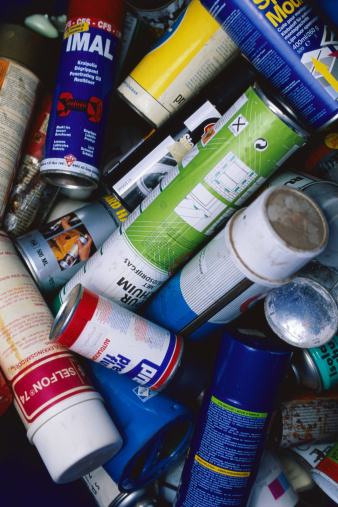
Many products found in homes contain chemicals that can be potentially harmful to both people and the environment. These products are considered hazardous and include such things as oven cleaners, paint removers, insecticides, solvents, drain cleaners etc. It is important for homeowners and businesses to dispose of the products properly so they do not contaminate the environment. If toxic or hazardous wastes are disposed of with regular garbage, they could destroy landfill liners and compromise the disposal area. Properly disposing of household hazardous wastes ensures that contamination through leaks and spills does not occur.
When use of hazardous household products is unavoidable, be sure not to flush them down the drain. Household drains lead to either a septic system or wastewater treatment plants which do not have the adequate capability to remove hazardous chemicals from wastewater. Toxic chemicals disrupt microbial processes in septic tanks and treatment plants, reducing their effectiveness. Toxins from hazardous products pass through the treatment process and can contaminate water resources. Hazardous products should never be poured down a storm sewer drain which is transported untreated into nearby waterways.
Common Household hazardous products:
- Products labeled as toxic, flammable, or corrosive
- Cleaning products: oven cleaner, floor wax, furniture polish, drain cleaner, spot remover
- Car products: motor oil, battery acid, gasoline, car wax, engine cleaner, antifreeze, degreaser, radiator flush, rust preventative
- Home Improvement: paints, preservatives, strippers, cleaners, solvents
To Reduce Hazardous Waste Pollution:
- Use non-toxic alternatives as opposed to conventional household cleaners whenever possible.
Take household hazardous wastes to Charles County Environmental Resources Household Hazardous Waste Event.
